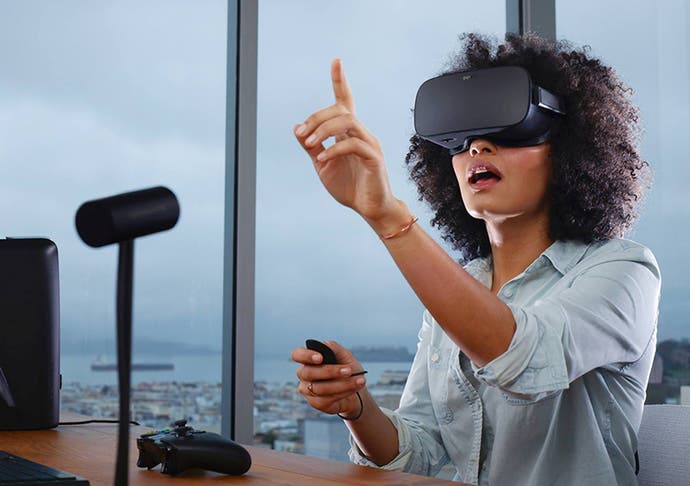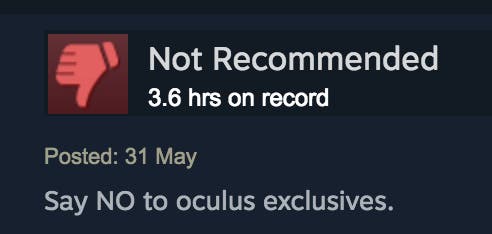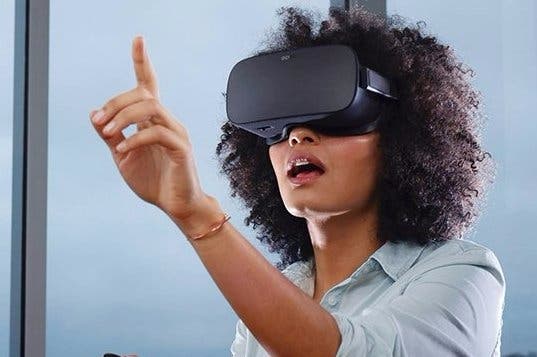Oculus discovers platform exclusives won't wash with the VR community
The hard way.
HTC Vive owners rejoice: at the end of last week, Oculus, manufacturers of the rival VR headset Rift, removed the hardware check that prevents games exclusive to the Oculus platform from being played on anything other than a Rift.

The check was originally introduced to prevent Vive owners from using an app called Revive that allowed them to access the Oculus store and frontend, and play Oculus games, on their HTC headsets. Revive doesn't enable piracy; you still have to pay for the games. But Oculus has invested a lot in acquiring the most impressive exclusive software library of any of the virtual reality platforms, and it wasn't happy. "This is hack, and we don't condone it," Oculus said at the time.
In mid-May, the Facebook-owned firm implemented the hardware check in a system update to cut off Revive use - meaning Vive owners who had paid for Oculus games could no longer play them. But now, a month later, Oculus has lifted the restriction. Reports circulated on Friday that the check was gone. "I've only just tested this and I'm still in disbelief, but it looks like Oculus removed the headset check from the DRM in Oculus Runtime 1.5," wrote the creator of Revive.
Oculus made no announcement but confirmed the news in a statement to The Verge: "We continually revise our entitlement and anti-piracy systems, and in the June update we've removed the check for Rift hardware from the entitlement check. We won't use hardware checks as part of DRM on PC in the future."
So why the change of heart?
Well, first, the move prompted Revive's author to respond with a fix that opened Oculus' software platform up to full-scale piracy. "I really didn't want to go down that path," LibreVR said at that time - and now that the hardware check is gone, Revive has been rolled back to a previous, non-piracy-friendly version.
Oculus will have been keen to shut this loophole down and protect game sales, as hinted by its statement: "We believe protecting developer content is critical to the long-term success of the VR industry." Still, it could have responded with an even tighter security patch; instead it chose de-escalation, removing its restrictions and trusting Revive to do the same. It could even be that, with Oculus still struggling with its supply lines and Rift very hard to get hold of, it has decided that it may as well sell games to the people out there who actually have VR headsets: Vive owners.
But the hardware check also put Oculus at philosophical loggerheads with the VR community, who took a dim view of business tactics that might seem par for the course for console fans, but are anathema to this hardcore subset of a hardcore subset of users of the open PC platform.

The announcement that the VR version of indie darling Superhot would be a time-limited Oculus Rift exclusive did not go down well at all. As reported by Kotaku Australia, the original game's Steam page has been bombarded with negative user reviews relating to the deal, dragging its overall 'Very Positive' rating down to 'Mixed'. The developer responded by trying to clarify its decision on Steam and Reddit, but the community's response has been resolute.
Much the same response greeted the developers of the magnificent Giant Cop when it was revealed during E3 that it, too, would be a timed Oculus exclusive. Giant Cop appeared first on Vive, and even had a demo released on Vive, before being snapped up by Oculus as a showcase for its forthcoming Touch motion controllers. "**** your team. **** your game. **** your company," wrote one Redditor.
The personal abuse might be unwarranted, but the general sentiment is shared by most VR enthusiasts on PC. They regard the audience as too small, the medium too young, and its prospects too delicate to be carved up by corporate interests. They have heard VR executives talk of an open, collaborative atmosphere between competing platforms - Oculus' own Palmer Luckey once even said he didn't believe in platform exclusives, although he now sings a different tune - and they expect them to hold to it.
Oculus has clearly not abandoned the strategy of signing exclusive games (in contrast to Valve, HTC's platform partner). But reopening the door to Revive seems to be a quiet, almost tacit way to start rebuilding bridges. Will it be enough?









